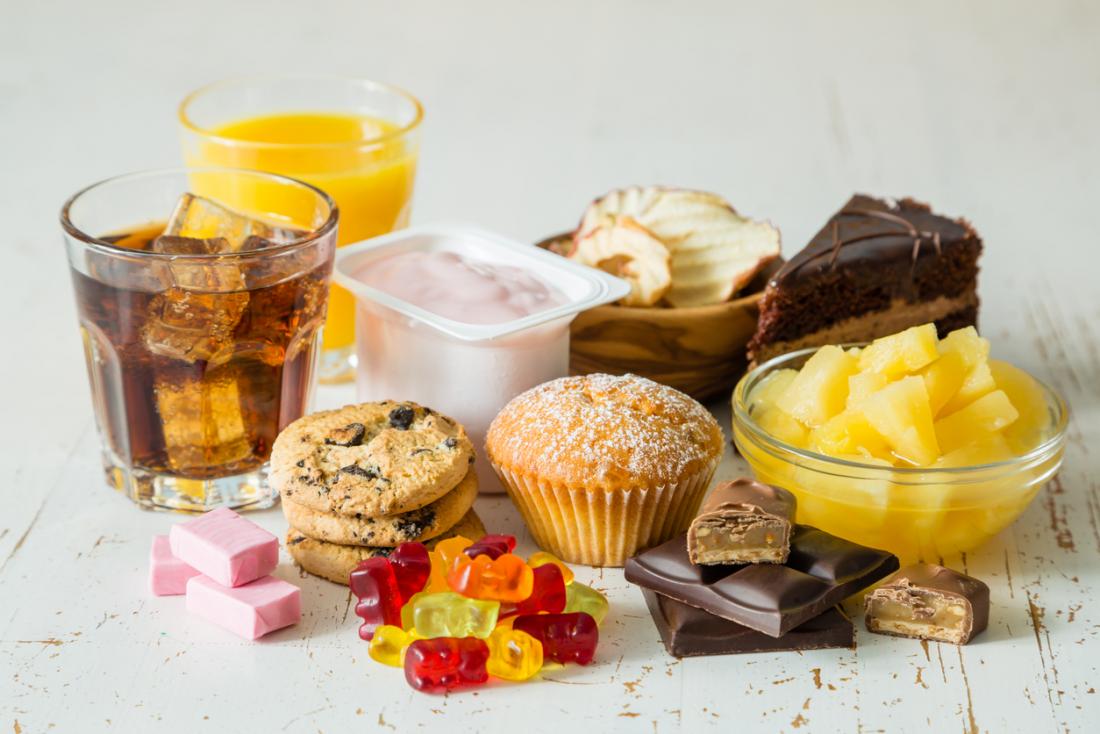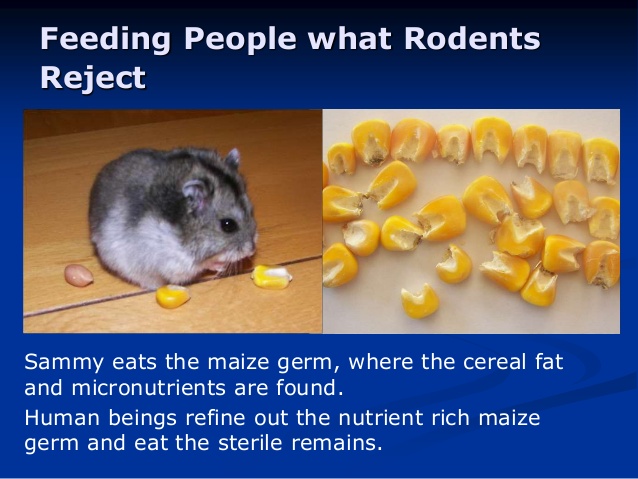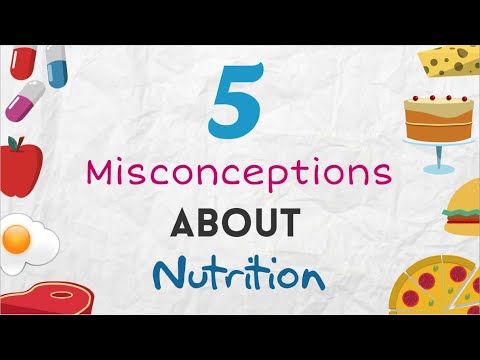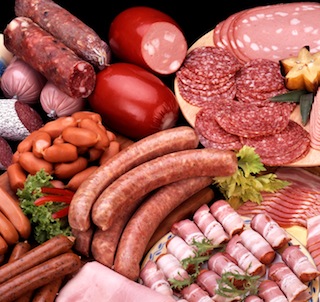
Constipation is the most common gastro intestinal complication characterized by less than three bowel movements per week, or bowel movement with dry hard stool that is difficult and painful to pass. Constipation can occur due to a variety of reasons but it is often the result of slow movement of food in the digestive tract. This slow movement could be as a result of inadequate water intake, poor diet, lack of or inadequate physical activity, stress, and medication side effect.
Fortunately, there exists natural laxatives that can help relieve constipation by adding bulk and softening the stool, reduce transit time in the gut and by increasing stool frequency.
Water
Water is the simplest way of relieving symptoms of constipation and getting your bowels moving again. Aim to drinking at least two liters or eight glasses of water every day and you will have regular bowels.
Prunes

Dried plums, known as prunes are an excellent natural remedy for constipation. Prunes are rich in soluble fiber which helps increase water content and adds bulk to the stool making its passage through the gut very easy. Prunes also contain antioxidants that encourage growth of beneficial gut bacteria that improves overall health of the digestive system.
Aloe Vera

Aloe vera plant is widely used health and beauty purposes. Aloe vera contains a compound known as anthraquinone that acts as a natural laxative. Add a few drops of aloe vera gel in your drinking water or drink aloe juice to help relieve constipation.
Pear

This seasonal fruit is rich in fiber with a medium sized pear giving approximately 22% of daily recommended fiber intake which bulks up the stool and helps it move better. Pear also contain a type of sugar that is poorly absorbed in some people which helps draw water from the body in the stool as transits through the colon making it softer and easier to pass through.
Green leafy vegetables

Green leafy vegetables like kale, spinach, lettuce and amaranth are not only rich in fiber but are also an excellent source of many vitamins and minerals. Green vegetables are also low in calories meaning you can eat them in large quantities without worrying about etra inches of your waist. Apart from softening and adding bulk to your stool, green vegetables are good sources of potassium which acts as a natural laxative.
Chia and flax seeds
Like most seeds, chia and flax seeds are a good source of fiber, vitamins, minerals and good oils. One table spoon of these seeds can give up to 15% of recommended daily intake of fiber. This fiber bulks up the stool and makes it pass better in the colon. Flax seeds have been used for centuries as a natural laxative. When chia seeds come into contact with water, it forms a gel that helps that helps lubricate the stool. Chia seeds can absorb twelve times its own weight in water which help bulk up stool.
Constipation most often lasts for a short period and is not dangerous. However, persistent constipation can be a symptom of a serious underlying condition and needs medical attention.



 Free sugars are all sugars added to foods or drinks during manufacturing, processing and preparation. Sugars that are naturally present in honey, syrup, fruit juices and fruit juice concentrates are also part of free sugars.
Free sugars are all sugars added to foods or drinks during manufacturing, processing and preparation. Sugars that are naturally present in honey, syrup, fruit juices and fruit juice concentrates are also part of free sugars.
 often associated with increased incidences of infections especially lower and upper respiratory tract.
often associated with increased incidences of infections especially lower and upper respiratory tract. Colon cleansing also known as colon irrigation or colon hydrotherapy is normally done with the belief that it will aid in removing excess waste and toxins, thought to have accumulated over time, from the colon. This waste in the colon is thought to produce toxins that enter one’s blood and purportedly result in ill health ranging from fatigue, digestive disorders, unwanted weight gain and chronic diseases like some types of cancer.
Colon cleansing also known as colon irrigation or colon hydrotherapy is normally done with the belief that it will aid in removing excess waste and toxins, thought to have accumulated over time, from the colon. This waste in the colon is thought to produce toxins that enter one’s blood and purportedly result in ill health ranging from fatigue, digestive disorders, unwanted weight gain and chronic diseases like some types of cancer. Cholesterol is a substance found in every cell of the body and is essential for health. The body uses cholesterol to make vitamin D, hormones, digestive bile and in building body cells.
Cholesterol is a substance found in every cell of the body and is essential for health. The body uses cholesterol to make vitamin D, hormones, digestive bile and in building body cells. Do you experience frequent compelling hunger characterized by cravings for carbohydrate rich foods? Well, you may be suffering from carbohydrate addiction.
Do you experience frequent compelling hunger characterized by cravings for carbohydrate rich foods? Well, you may be suffering from carbohydrate addiction. With all the constantly changing information given by self proclaimed experts on social media, healthy eating can be quite confusing. From the low fat, low carb and no carb diets to the more recent high fat, no solids and juicing diet; one wonders what is left to consume to maintain health and life.
With all the constantly changing information given by self proclaimed experts on social media, healthy eating can be quite confusing. From the low fat, low carb and no carb diets to the more recent high fat, no solids and juicing diet; one wonders what is left to consume to maintain health and life. Digestive health problems like bloating have become very common in both adults and children. These problems can simply be as a result of a poor dietary habits or a symptom of a bigger health problem, which if left unmanaged, can lead to severe chronic conditions.
Digestive health problems like bloating have become very common in both adults and children. These problems can simply be as a result of a poor dietary habits or a symptom of a bigger health problem, which if left unmanaged, can lead to severe chronic conditions. Do you find yourself saying ‘not tonight baby’ more often than usual? Many men are under the spell of a decreased sex drive not knowing that something as simple as diet would prove the magic bullet to their woes. Certain foods can lower testosterone, a hormone that drives the human libido, living one with a low sex drive. However, just like everything in life, too much of these foods can take away the desire. If you want to get your bedroom mojo back, then moderate intake of these foods:
Do you find yourself saying ‘not tonight baby’ more often than usual? Many men are under the spell of a decreased sex drive not knowing that something as simple as diet would prove the magic bullet to their woes. Certain foods can lower testosterone, a hormone that drives the human libido, living one with a low sex drive. However, just like everything in life, too much of these foods can take away the desire. If you want to get your bedroom mojo back, then moderate intake of these foods: A number of foods including wheat based foods; sugar and most carbohydrates have been solely blamed for weight gain and labeled bad for those trying to lose weight and those trying not to regain the weight they have lost. Mostly this labeling is common with people who embark on ‘special diets’ in a bid to lose weight or those trying to maintain a ‘clean diet’
A number of foods including wheat based foods; sugar and most carbohydrates have been solely blamed for weight gain and labeled bad for those trying to lose weight and those trying not to regain the weight they have lost. Mostly this labeling is common with people who embark on ‘special diets’ in a bid to lose weight or those trying to maintain a ‘clean diet’ It is a common practice among people trying to lose weight to skip meals in an attempt to shed off a few kilos. Most people will skip breakfast or lunch and tolerate the hunger pangs until the next meal. However, feeling hungry and running low on energy aren’t the only things your body will suffer from when you skip a meal. There are more serious consequences.
It is a common practice among people trying to lose weight to skip meals in an attempt to shed off a few kilos. Most people will skip breakfast or lunch and tolerate the hunger pangs until the next meal. However, feeling hungry and running low on energy aren’t the only things your body will suffer from when you skip a meal. There are more serious consequences. Metabolism is the chemical process that occurs in a living organism in order to maintain life. Body functions such as breathing, digestion, pumping of blood, elimination of waste among others form part of metabolism. For all of these processes to take place and maintain life in the human body, energy must be present. This energy comes from the food we eat and is measured in terms of calories. Naturally, metabolism slows down at night, with its peak in the morning and dips as the day grows old. Metabolism naturally slows down at night when one is sleeping and less active to give the body an opportunity to repair its self.
Metabolism is the chemical process that occurs in a living organism in order to maintain life. Body functions such as breathing, digestion, pumping of blood, elimination of waste among others form part of metabolism. For all of these processes to take place and maintain life in the human body, energy must be present. This energy comes from the food we eat and is measured in terms of calories. Naturally, metabolism slows down at night, with its peak in the morning and dips as the day grows old. Metabolism naturally slows down at night when one is sleeping and less active to give the body an opportunity to repair its self. It is a common practice among people trying to lose weight to skip meals in an attempt to shed off a few kilos. Most people will skip breakfast or lunch and tolerate the hunger pangs until the next meal. However, feeling hungry and running low on energy aren’t the only things your body will suffer from when you skip a meal. There are more serious consequences.
It is a common practice among people trying to lose weight to skip meals in an attempt to shed off a few kilos. Most people will skip breakfast or lunch and tolerate the hunger pangs until the next meal. However, feeling hungry and running low on energy aren’t the only things your body will suffer from when you skip a meal. There are more serious consequences. Fast food joints have become popular especially for the middle class Kenyan who sees them as cooler and classier. Kenya has provided a ready market for giant companies in the fast food industry. World famous brands have found their way into the Kenyan market with some having more than 5 outlets to meet the growing demand.
Fast food joints have become popular especially for the middle class Kenyan who sees them as cooler and classier. Kenya has provided a ready market for giant companies in the fast food industry. World famous brands have found their way into the Kenyan market with some having more than 5 outlets to meet the growing demand.

 A study released in 2015 by the Cancer Agency for World Health Organization confirmed the link between consumption of processed meats and cancer occurrence. The risk increases with increased consumption; with every 50grams of processed meats eaten daily, there is 18% increased risk of developing cancer of the colon and rectum. Processed meats like bacon, sausages, salami, sandwich browns and hot dogs among others also contain a chemical known as sodium nitrate, a preservative, which can potentially damage blood vessels causing narrowing and hardening of arteries which increase the risk of heart diseases. This chemical can also impede on the body’s ability to process glucose increasing the risk of type 2 diabetes.
A study released in 2015 by the Cancer Agency for World Health Organization confirmed the link between consumption of processed meats and cancer occurrence. The risk increases with increased consumption; with every 50grams of processed meats eaten daily, there is 18% increased risk of developing cancer of the colon and rectum. Processed meats like bacon, sausages, salami, sandwich browns and hot dogs among others also contain a chemical known as sodium nitrate, a preservative, which can potentially damage blood vessels causing narrowing and hardening of arteries which increase the risk of heart diseases. This chemical can also impede on the body’s ability to process glucose increasing the risk of type 2 diabetes. When juices and fat drippings from meat hit open fires when roasting, compounds known as polycyclic amines and polycyclic aromatic hydrocarbons are formed. With increased and frequent consumption of roast meat, these compounds can potentially cause changes in a person’s DNA raising their risk of cancer especially colon and rectal cancers. The tasty burnt sections of the meat contain the highest concentration of the compounds hence vital to trim them off before eating.
When juices and fat drippings from meat hit open fires when roasting, compounds known as polycyclic amines and polycyclic aromatic hydrocarbons are formed. With increased and frequent consumption of roast meat, these compounds can potentially cause changes in a person’s DNA raising their risk of cancer especially colon and rectal cancers. The tasty burnt sections of the meat contain the highest concentration of the compounds hence vital to trim them off before eating.

 Cancer is the third highest cause of death in Kenya after infectious and cardiovascular diseases causing approximately 7% of all deaths every year. 39,000 new cases of cancer are reported annually with approximately 27,000 deaths per year. The most common cancers in women are breast and cervical cancers with breast cancer accounting for 23.3% of all cancer deaths. (Kenya Network of Cancer Organizations.)
Cancer is the third highest cause of death in Kenya after infectious and cardiovascular diseases causing approximately 7% of all deaths every year. 39,000 new cases of cancer are reported annually with approximately 27,000 deaths per year. The most common cancers in women are breast and cervical cancers with breast cancer accounting for 23.3% of all cancer deaths. (Kenya Network of Cancer Organizations.)